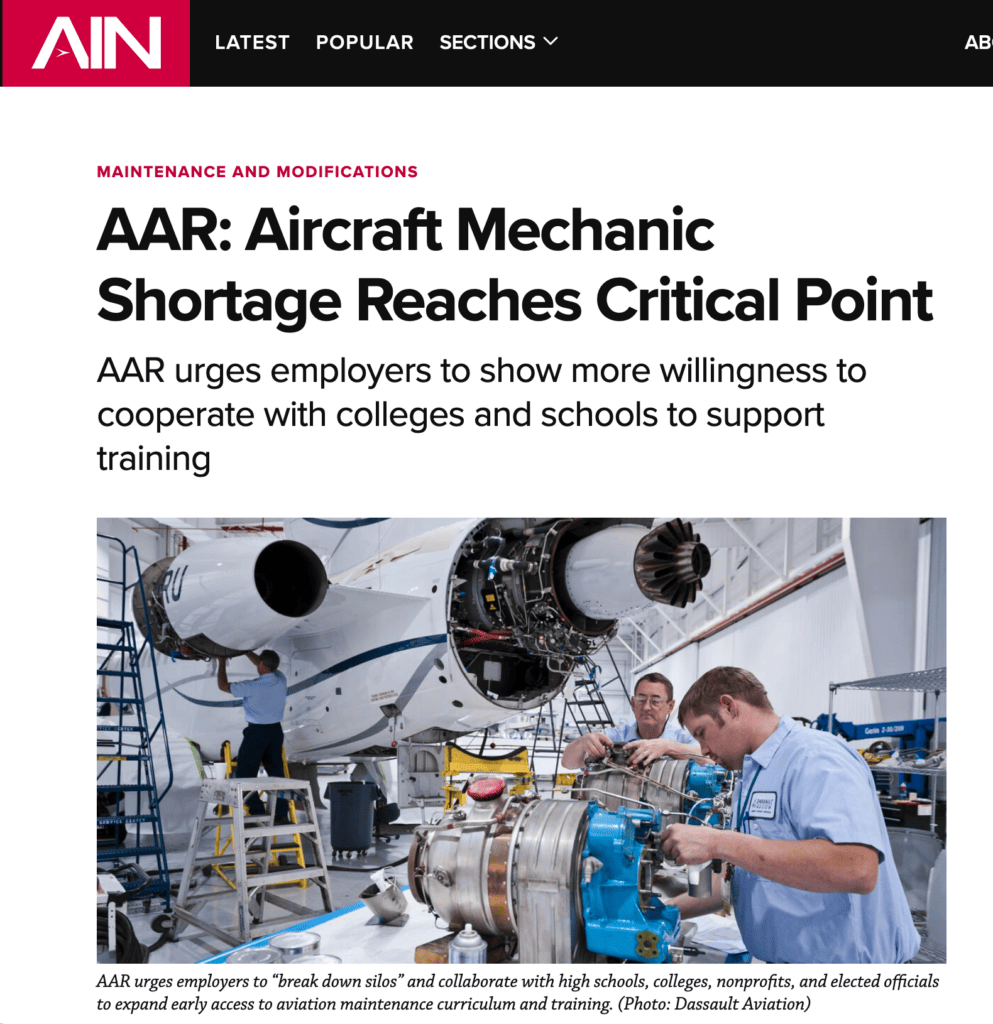
We agree that the global aviation sector is currently grappling with an unprecedented mechanic shortage, which, as per the report from maintenance group AAR, has reached alarming levels. While the call for breaking down silos and increasing collaboration with educational institutions for early access to aviation maintenance curriculum and training is in the spotlight, another critical, yet understated solution begs attention – reducing the administrative load on aircraft mechanics.
The Hidden Struggle: Paperwork and Administrative Tasks
Aircraft mechanics, experts at ensuring our flights are safe and sound, unfortunately, spend a significant chunk of their time engulfed in administrative tasks and searching for aircraft records. This not only diminishes their efficiency but also takes away from their core competency and passion—fixing airplanes. To address the severe shortage of aircraft mechanics, a shift in focus is crucial, from paperwork to hands-on mechanical work, enabling technicians to do what they love most.
The Direct Impact: Productivity and Job Satisfaction
By alleviating the administrative burden, aircraft technicians can substantially increase their productivity, dedicating more time to actual repair and maintenance tasks. This shift could lead to enhanced job satisfaction and a reduction in turnover rates among aircraft mechanics, further alleviating the shortage in the long run.
Moreover, happier, more fulfilled mechanics would likely translate to higher quality work, ensuring that aircraft are maintained to the highest safety and performance standards. Thus, it’s not just about filling vacancies but enriching the quality of service provided by these invaluable technical experts.
Solutions: Streamlining Administrative Processes
- Implementing Advanced Software Solutions: Investing in advanced software and technology can streamline record-keeping and administrative tasks, enabling faster access to essential information and reducing paperwork.
- Optimizing Workflow Management: Efficient workflow management systems can significantly reduce time spent on unnecessary administrative tasks, allowing technicians more time for aircraft maintenance.
- Regular Training and Updates: Providing mechanics with regular training and updates on administrative processes can help in reducing the time spent on such tasks and ensure smoother, more efficient operations.
Industry-Wide Benefits
Streamlining administrative processes industry-wide not only alleviates the aircraft mechanic shortage but also contributes to the overall growth and advancement of the aviation sector. It enables mechanics to focus on continual learning and mastery of their craft, elevating the industry’s standards and ensuring aircraft safety and reliability.
Moreover, such advancements promote a culture of excellence and passion within the workforce, fostering an environment where mechanics feel valued and are encouraged to contribute their best work. This directly aligns with the insights provided by AAR, emphasizing the necessity for companies to invest in solutions that benefit not just individual entities but the industry as a whole.
Conclusion
While collaboration with educational institutions and policy reforms are critical steps towards addressing the aircraft mechanic shortage, optimizing and reducing administrative tasks for mechanics is equally crucial. By allowing mechanics to return to their passion for repairing and maintaining aircraft without being bogged down by paperwork, the aviation industry can significantly alleviate the existing workforce shortage while enhancing service quality and safety standards.
This holistic approach, integrating educational advancements, policy reforms, and internal process optimizations, is pivotal for navigating the current crisis and fostering a sustainable, resilient, and thriving aviation sector in the years to come.
Why not assign QR codes to each inspection along with faults associated with the inspection allowing for additional write ups to be added to the individual inspection?